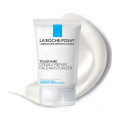Benefits of Saffron: The Golden Thread Enhancing Our Mood and Health
Saffron is a spice that can do wonders for your health when consumed on a regular basis. It may be time to consider including it in your diet plan to experience improved health and mood.
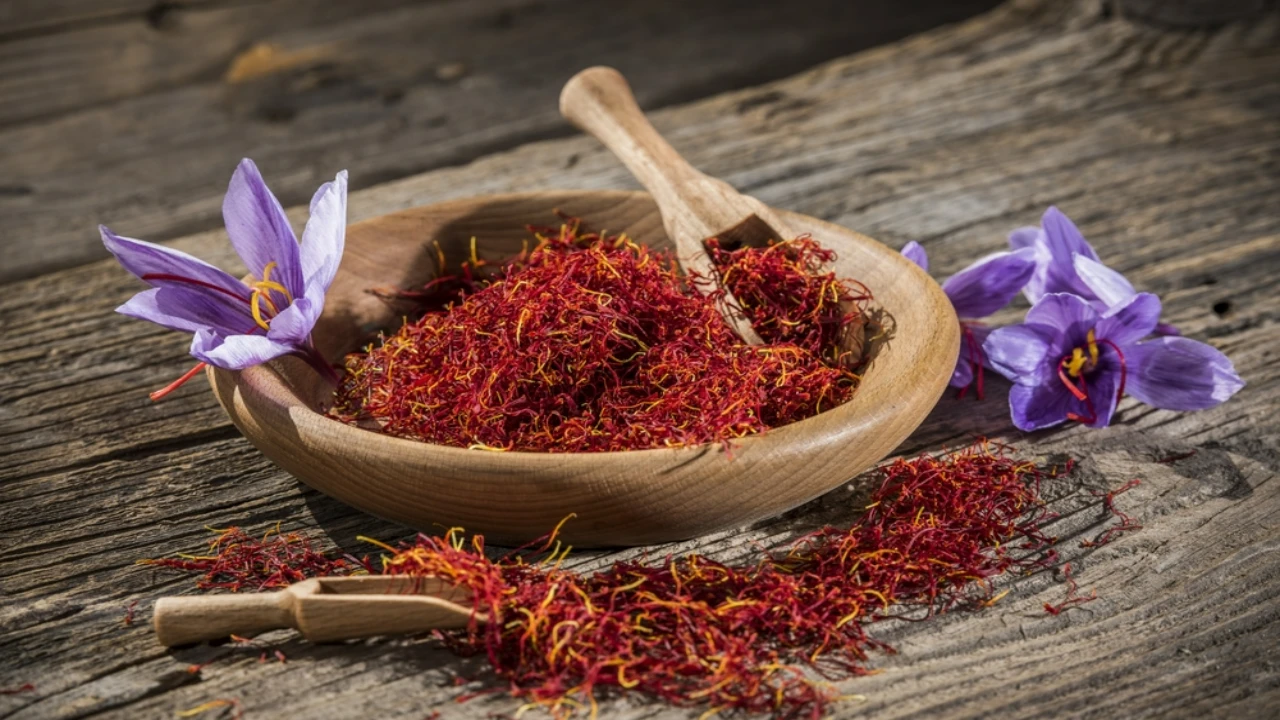
Saffron is one of the most expensive spices in the world and rightly so. It can cost anywhere between 500 Dollars to 5000 Dollars for a pound. It is handpicked and produced meticulously which makes it a labor intensive process to get saffron in our homes. There are a host of benefits of saffron due to which it's a popular spice since ancient times. Saffron has a beautiful color and smell and is used in various savory and sweet dishes across the world. It is also at times consumed as a tea. Historically, saffron extract has been used to treat a variety of health problems as well. It is known to have health - boosting and healing properties. Some of the health problems it is known to combat are menstrual issues, stomach issues, ulcers etc.
What is saffron?
Saffron comes from the flowers of crocus sativus Linné. It flowers only during October and November for about three to four weeks. The flower contains dark red stigmas which are thread like structures, these threads are carefully picked and dried. These threads are the saffron spice. The origin of saffron is largely debated but it may have possibly originated from Iran. It is now largely cultivated in India, Greece and Europe. Saffron has been popular for its medicinal properties. It is known to be consumed to boost libido, improve memory and mood (1).
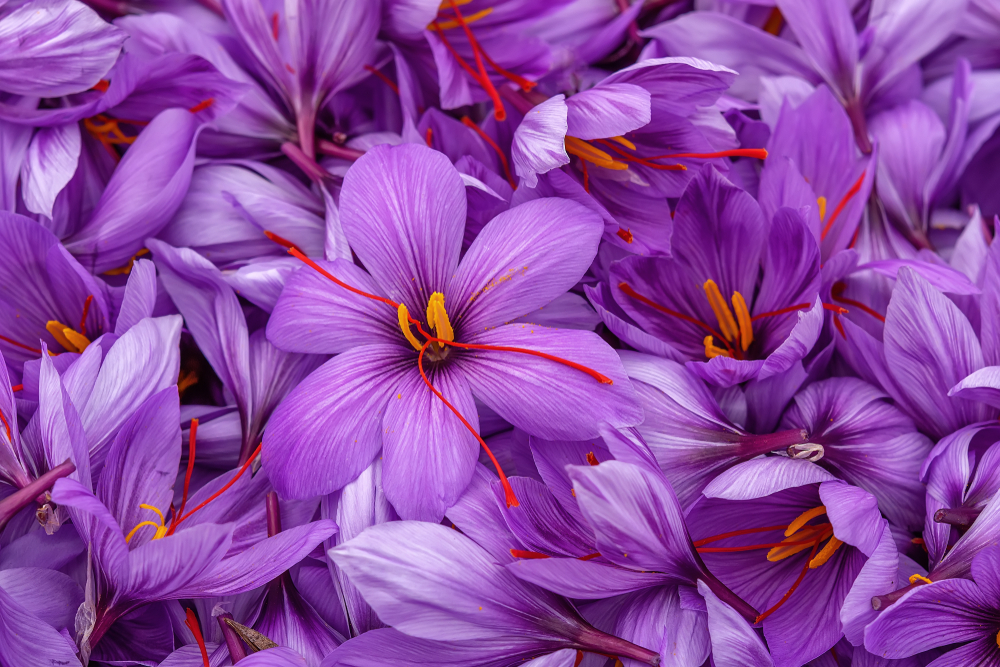
Nutritional Value Of Saffron
Saffron has a large amount of plant compounds that act as antioxidants. Some of these compounds are crocetin, kemperanol, crocin and safranal (2). It is rich in nutrients which makes it a go to for various health issues.
Hundred grams of saffron would contain the following nutrients (3):
- Sodium- 148
- Potassium- 1724 mg
- Dietary fibre- 3.9mg
- Protein- 11gm
- Sodium- 148
- Calcium- 111 milligrams
- Iron- 11.1 mg
It also contains minerals as per required Daily intake :
- Vitamin C- 134%
- Vitamin B6- 50%
- Magnesium- 66%
- Iron- 61%
Health Benefits of Saffron
1. Antioxidant Properties
The antioxidants in saffron protect your cells from free radicals and oxidative stress. This is one of the essential health benefits of saffron. The antioxidants help fight cell damage. Research has also demonstrated that the antioxidants in saffron may be beneficial for the brain and nervous system (2). Antioxidants like crocin in saffron extract may help in improving memory and learning ability. Saffron has a distinct taste and aroma which may be due to safranal. Research suggests that this substance is great to improve mood, memory, learning and protect your cells from oxidative stress (4). Kaempferol is also a substance found in saffron flower petals. This has been associated with health benefits like reduction in inflammation (5). Having a diet that is rich in antioxidants is a great way to boost your immunity and health.
2. May Improve Mood and Help with Depressive Symptoms
Saffron is also called the sunshine spice. This name comes not just from the yellow color that it leaves but also because of how it brightens your mood. Saffron is believed to have mood-boosting properties. A research published in the Journal of behavioral and brain sciences showed that saffron extract played a role increasing dopamine levels in the brain without impacting other hormones like serotonin (6). Another research also suggested that consuming 30 milligrams of saffron daily could lead to effects that are similar to drug treatment using imipramine and fluoxetine. Another major benefit was that people experienced fewer side effects by using saffron compared to drug treatment (2) (7) (8). While it impacts mood positively, more research needs to be conducted to claim it as an effective therapy for treating depressive symptoms.
3. Cancer Combating Properties
It is well known that free radicals are closely linked to chronic diseases like cancer. Saffron is high in antioxidants and flavonoids which helps to neutralize the free radicals (9). Flavonoids are chemicals that help plants protect themselves from disease and fungus.
There have been test tube studies, which found that saffron and its compounds selectively kill colon cancer cells or suppress their growth. They also leave healthy cells unharmed in this process (10). This process and effect seems to apply also to other cancer cells like lung, breast, prostate, cervix and other cancer cells (11). Most studies of saffron and cancer have been test-tube studies and more human studies need to be done in order to consider it as an effective preventative measure.
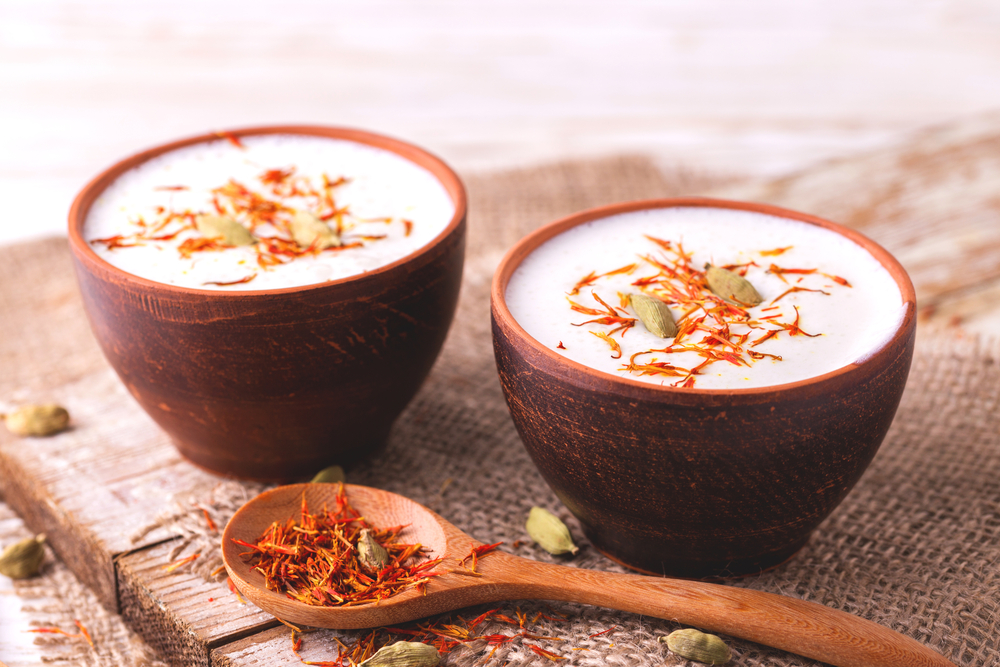
4. Helps with PMS symptoms
PMS which is Premenstrual syndrome is a term used to describe the psychological, physical and emotional symptoms that women experience prior to the start of their period. Saffron may be effective in coping with the symptoms of PMS. It is said to help with PMS related depressive symptoms according to some studies (12). In a study consisting of women ages between 20 - 45, It was found that consuming 30 mg of saffron extract daily was more effective compared to placebo in the management of PMS symptoms like cravings, headaches, pains and irritability (13). Evidently, saffron benefits women experiencing painful PMS symptoms and helps manage mood. It may be a good alternative to try as a home remedy.
5. Could be an Aphrodisiac
Aphrodisiacs are substances that boost sexual desire or libido. Research suggests that one of the health benefits of saffron is that it can increase sex drive as well as satisfaction. This was specially seen in patients who were on antidepressants. Taking 30 mg of saffron on a daily basis for more than 4 weeks showed significant improvement in erectile function compared to placebo in men who were suffering from antidepressant induced erectile dysfunction (14). An analysis of six studies also showed that consuming saffron considerably improved libido, erectile function and overall satisfaction but did not alter any semen characteristics (15). It seems to also help women with sexual issues. In a research conducted on women experiencing low sexual desire related to anti- depressants, taking 30 mg of saffron for over 4 weeks increased sexual desire and eased sex related pain. It also increased lubrication compared to placebo (16).
6. Good for The Heart
Saffron has a variety of chemical components and some of them may help reduce blood pressure, in turn providing you protection from heart diseases. A systematic review of studies done on rats demonstrated that saffron helps lower blood pressure. Research done on rabbits also found that saffron was effective in lowering triglyceride and cholesterol levels (17). A study on humans which is older also showed that saffron reduced the possibility of bad cholesterol causing tissue damage. It is believed that the antioxidant properties in saffron may play a role in helping it act as a protective factor for heart diseases.
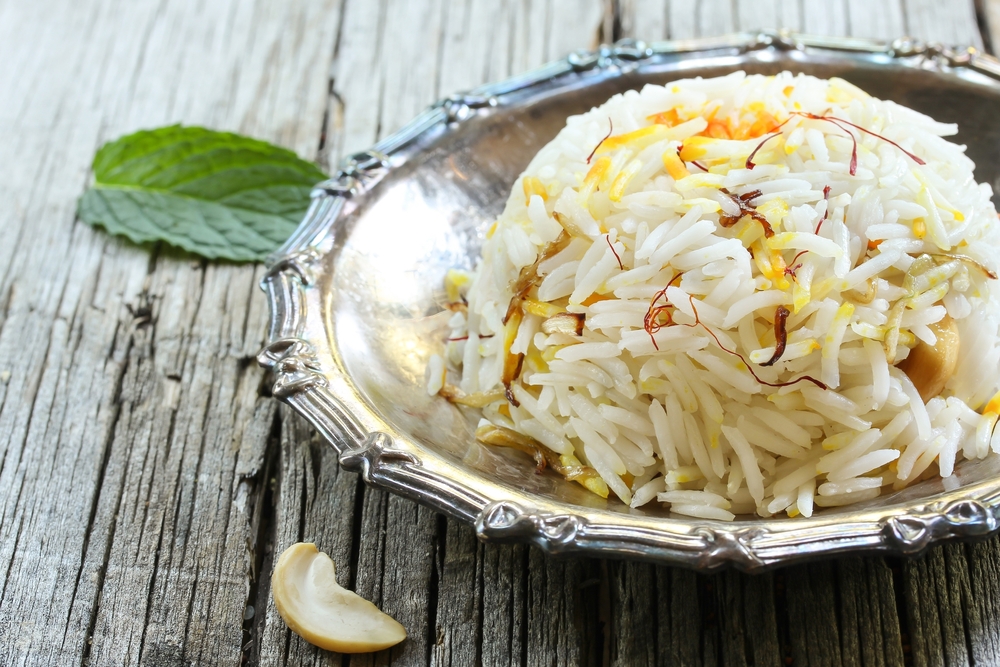
How To Use Saffron
Saffron is a spice that can be easily infused into your diet given its flavor and color. You can simply soak a few saffron threads in hot water and have it as a tea. This liquid can also be used to add to your savory dishes to add flavor. The saffron threads can also be used in rice preparations or when cooking meat, vegetables or baked goods. They add a sharp flavor and a yellow-orange color to the preparation. You may find various dishes and recipes to infuse saffron into your meals like a saffron risotto, persian saffron pudding or saffron ginger carrot soup.
In recent times saffron has also become available in markets in the form of capsules. But it may be important to reach the packaging and consult a doctor before you consume these.
Daily Dosage of Saffron
When it comes to saffron, remember that a little goes a long way. One gram of saffron may contain as much as 500 threads. When using it in cooking, one pinch which is a few threads are enough to give you its flavor, color and benefits. Saffron is also used as a supplement and it is believed that up to 1.5 grams is safe to consume per day. Most studies have shown that even as little as 30 mg is enough to give you the health benefits of saffron.
Side Effects and Precaution of Saffron
While saffron can seem like a magic spice for all your troubles, you may want to be careful with how much you use it. In general, consumption of saffron carries low risk. Adding it to your daily cooking is the best way to consume it as it also limits the proportion. Too much saffron is something you want to avoid! 1.5 grams of saffron extract is considered safe, however when you consume more than that, it can be toxic. Research found 5 g is a toxic dose (18). It is also possible to have an allergy and hence, anyone that experiences an allergic reaction must immediately see a doctor. Saffron is also best avoided by certain groups of people for health reasons. High amounts of saffron affect fetus growth and increases chances of miscarriage. Therefore pregnant and breastfeeding women must avoid consuming high doses of saffron (19). Saffron is also known to affect mood and hence it may be best to check with your health provider before you use saffron as a supplement.
While shopping for saffron it is also important for you to be aware of Saffron look-alikes. There are plants that may look similar to saffron and may be sold given it’s an expensive herb. These look-alikes can be toxic.
Conclusion:
Saffron is being used as a herb and spice for eons. It is quite popular in Middle Eastern, Indian and South Asian food preparations. Its distinct flavor, smell and color make it a special spice in a lot of dishes. There are numerous benefits of saffron making it a good choice of food to add to your daily routine. Scientifically, saffron is known to help with a large host of health issues like PMS symptoms, heart health and depressive symptoms. Saffron extracts tend to have a high amount of antioxidants giving it medicinal properties. It is one of the most expensive herbs, however, even a little bit of it is sure to give you the health benefits. It may be essential to pay heed to the amount of saffron you consume and not overuse it. An overuse, often may be toxic. There are no general side effects of consuming saffron and you can easily add it to your food or dessert. You can also try saffron tea if that appeals more to you. With saffron, know that a pinch is all you need for cooking and for your body!
Sources:
- Herbal medicines, other than St. John's Wort, in the treatment of depression: a systematic review - PubMed (nih.gov
- The effects of Crocus sativus (saffron) and its constituents on nervous system: A review - PubMed (nih.gov)
- FoodData Central (usda.gov)
- Safranal: from an aromatic natural product to a rewarding pharmacological agent - PubMed (nih.gov)
- A review of the dietary flavonoid, kaempferol on human health and cancer chemoprevention - PubMed (nih.gov)
- Modelling the Financial Value of the Maroochy River to Property Values: An Application of Neural Networks (researchgate.net)
- Comparison of Saffron versus Fluoxetine in Treatment of Mild to Moderate Postpartum Depression: A Double-Blind, Randomized Clinical Trial - PubMed (nih.gov)
- Saffron in the treatment of depression, anxiety and other mental disorders: Current evidence and potential mechanisms of action - PubMed (nih.gov)
- Chronic inflammation and oxidative stress as a major cause of age-related diseases and cancer - PubMed (nih.gov)
- Crocin from Crocus sativus possesses significant anti-proliferation effects on human colorectal cancer cells - PubMed (nih.gov)
- Anticarcinogenic effect of saffron (Crocus sativus L.) and its ingredients - PubMed (nih.gov)
- The effectiveness and safety of Iranian herbal medicines for treatment of premenstrual syndrome: A systematic review - PMC (nih.gov)
- Epidemiology of Premenstrual Syndrome (PMS)-A Systematic Review and Meta-Analysis Study - PubMed (nih.gov)
- Effect of saffron on fluoxetine-induced sexual impairment in men: randomized double-blind placebo-controlled trial - PubMed (nih.gov)
- A systematic review and meta-analysis of clinical trials on saffron ( Crocus sativus) effectiveness and safety on erectile dysfunction and semen parameters - PubMed (nih.gov)
- Saffron for treatment of fluoxetine-induced sexual dysfunction in women: randomized double-blind placebo-controlled study - PubMed (nih.gov)
- Crocus sativus L.: A comprehensive review - PMC (nih.gov)
- Thieme E-Journals - Drug Research / Full Text (thieme-connect.com)
- Toxicology effects of saffron and its constituents: a review - PMC (nih.gov)
- The effects of Crocus sativus (saffron) and its constituents on nervous system: A review - PubMed (nih.gov)
- The Effect of Saffron Consumption on Liver Function: A Systematic Review and Meta-Analysis of Randomized Controlled Clinical Trials - PubMed (nih.gov)





 JOIN OUR WHATSAPP CHANNEL
JOIN OUR WHATSAPP CHANNEL






































